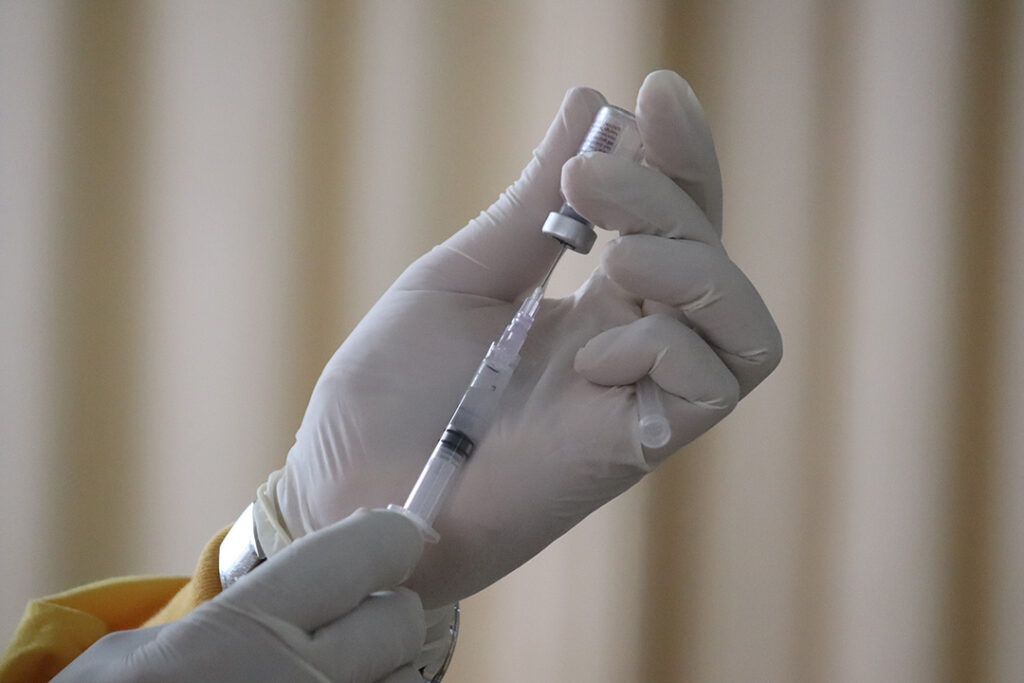Assisted dying without the help of doctors: Expression of freedom or inhumanity?
Assisted dying without the help of doctors: Expression of freedom or inhumanity?
The topic of active euthanasia is controversial. The invention of a fully automatic suicide capsule creates even more ethical challenges.
A particularly vulnerable phase of life
As society ages, more and more people in Europe are affected by the need for long-term care and are dependent on the help of others. For example, in Germany there were 2.02 million people in need of long-term care in 1999, in 2009 their number had dropped to 2.34 million and in 2019 there were 4.13 million people in need of long-term care as defined by the German Long-Term Care Insurance Act.[1] Due to demographic developments in the industrialised nations, it is probable that this trend will continue.[2]
The problem is in the care of these vulnerable groups of people.: On the one hand, many relatives do not feel able to adequately care for their sick or dying relatives. On the other hand, there is a glaring lack of professional caregivers.[3]
Autonomy as the highest good?
Many fear this situation, especially because they do not want to be dependent on others until the end of their lives, if possible. A long life is desired by many, but not a long death in the sense of stages of illness and need for care. Our plural and largely secular contemporary society allows and sometimes expects everyone to take their fate into their own hands, – in living as well as in dying.[4] In this sense, autonomy is seen by many contemporaries as freedom of choice, as the possibility of being able to decide for oneself also about the end of life.[5]
The right to self-determination and thus the possibility and the right of the individual to shape his or her life according to his or her own ideas is also the focus of the discussions on assisted suicide. Assisted suicide is a special case of euthanasia in which death is not brought about by the actions or omissions of others, as in the case of active or passive euthanasia, but by the persons concerned themselves.[6]
Ethical challenges
In some European countries, such as Switzerland, Belgium and the Netherlands, assisted suicide or active euthanasia is, – unlike in Germany, – permitted. Active euthanasia refers to the killing of a person at their request. This is usually done by means of medication prescribed or administered by a doctor.[7] Until recently, the accompaniment of physicians in the context of planning and carrying out all forms of euthanasia was a matter of course. However, this has changed since the invention of the so-called Sarco-Pod.[8] The Sarco-Pod is a euthanasia device or machine consisting of a 3D-printed detachable capsule mounted on a stand and containing a canister of liquid nitrogen to die by asphyxiation by inert gas through suicide. Suicide with the help of a robot machine. That is the idea behind the Sarco capsule.[9]
The Sarco Pod polarises
For some people Sarco offers the possibility to end one’s life in a self-determined way and without assistance. The mobile capsule is supposed to help people who want to die in 2022. Quite legally, at least in Switzerland.[10] But not everyone sees the Sarco-Pod as a good way to end one’s life. Thus, the invention of the killing machine raises ethical problems and discussions. Above all, representatives of the different religions speak out firmly against the invention of the Sarco Pod[11] in particular and against active euthanasia in general. For example, the Roman Catholic Church advocates assisted dying instead of euthanasia. People should die by the hand and not by the hand of fellow human beings. From an Islamic perspective, people are not allowed to end their lives themselves and active euthanasia is also categorically rejected. Jewish law also forbids any kind of euthanasia, – active or passive.[12] Opinions differ on the Sarco pod. For some, it is a way to a painless suicide and an expression of autonomy. For others, it evokes unease and horror because death comes so low and seems to have lost not only its humanity but also its reference to God, especially from a religious standpoint.
Our team of analysts conducts research on topics relating to religion and society. Find out their relationships on the EARS Dashboard.
Sources
[3] Der Pflegenotstand in Echtzeit
[4] Selbstbestimmung bis in den Tod
[5] Selbstbestimmung bis in den Tod
[7] Sterbehilfe im Ausland: In diesen 4 Ländern ist Sterbehilfe erlaubt
[8] Arzt baut Maschine, die Menschen beim Sterben hilft
[9] Vollautomatische Gas-Kapsel – Sterbehilfe durch den Sarco-Pod legal zugelassen
[10] ‘Painless Death’ In One Minute: Euthanasia Machine Legalized By Switzerland
[11] Die Suizidkapsel Sarco sorgt weltweit für Wirbel – jetzt platzt die Premiere in der Schweiz






